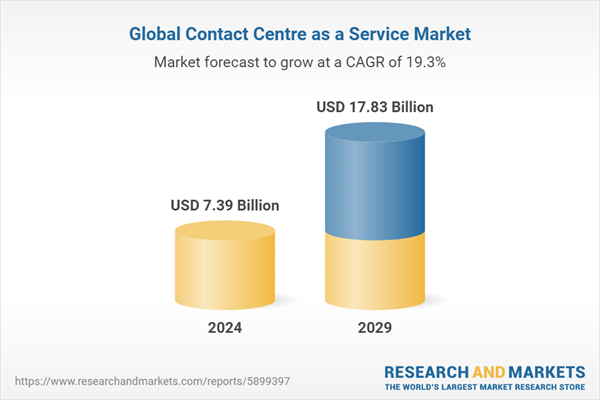CCaaS demand set to hit $17.8bn by end of the decade
https://contactcentresummit.co.uk/wp-content/uploads/2024/02/ccaas-thisisengineering-raeng-64YrPKiguAE-unsplash.jpg 960 640 Stuart O'Brien Stuart O'Brien https://secure.gravatar.com/avatar/81af0597d5c9bfe2231f1397b411745a?s=96&d=mm&r=gThe Global Contact Centre as a Service (CCaaS) market is expected to generate $17.83 billion by the end of 2029, up from $4.73 billion in 2022.
The big prediction comes in a new report for ResearchAnMarkets, which says as businesses increasingly embrace digital technologies and channels, there’s a growing need to modernise their contact centre operations.
CCaaS solutions provide the flexibility to adapt to these changes, enabling businesses to meet customer expectations in a digital-first world.
During the forecast period, 2024-2029, Global Contact Centre as a Service is expected to expand at a CAGR of 19.28%. The growing population, as well as the growing urbanisation rate, are driving up the market.
CCaaS allows companies to scale their contact centre operations up or down easily. This flexibility is crucial in industries with fluctuating call volumes, such as retail during the holiday season or healthcare during a public health crisis. Traditional on-premises contact centre systems can be expensive to set up and maintain. CCaaS solutions eliminate the need for significant upfront investments and reduce ongoing operational costs. Organisations pay for the services they use on a subscription or pay-as-you-go basis.

The rise of remote work and hybrid work models, accelerated by the COVID-19 pandemic, has created a need for cloud-based communication solutions. CCaaS platforms enable agents to work from anywhere with an internet connection, ensuring business continuity and flexibility.
Integration capabilities are a crucial driver of the CCaaS market. CCaaS solutions can easily integrate with customer relationship management (CRM) systems, enabling agents to access customer data and history, resulting in more personalized interactions. CCaaS platforms are increasingly incorporating AI and automation to enhance customer service. Chatbots, virtual assistants, and predictive analytics can handle routine inquiries, freeing up human agents to focus on more complex tasks.
The Americas, comprising North, Central, Latin, and South America, represents a significant market for Contact Centre as a Service Offering. With increasing regulatory requirements around data security and privacy (e.g., GDPR, CCPA), CCaaS providers are enhancing their offerings to ensure compliance. This is particularly important for industries like healthcare and finance.
Photo by ThisisEngineering RAEng on Unsplash










